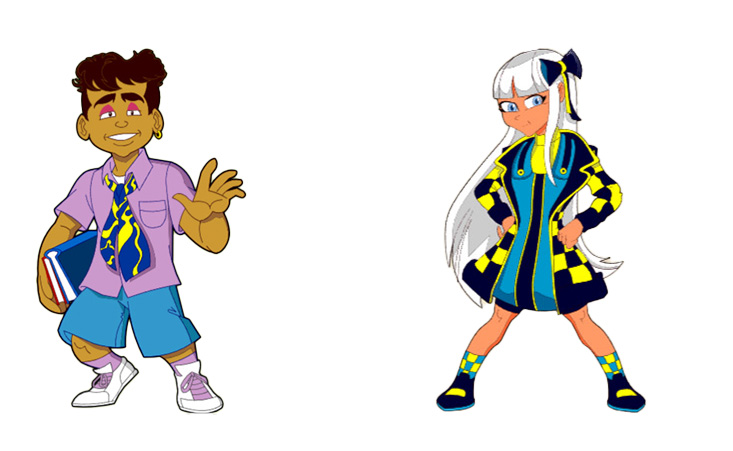3.2 Eigenschaften und Gegensätze

Hallo!
Zum Aufwärmen machen wir unseren Tagesminiplausch und eine Wiederholung.
Wiederholung
In the previous lesson, you learned characteristics that describe how a person is, specifically words that are cognates (similar to English). You also learned how you can add the prefix -un to make some adjectives the opposite. Let’s review what you have learned.
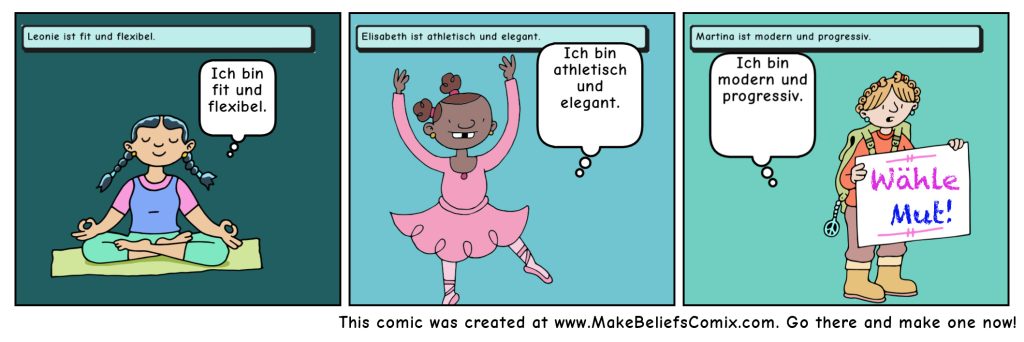
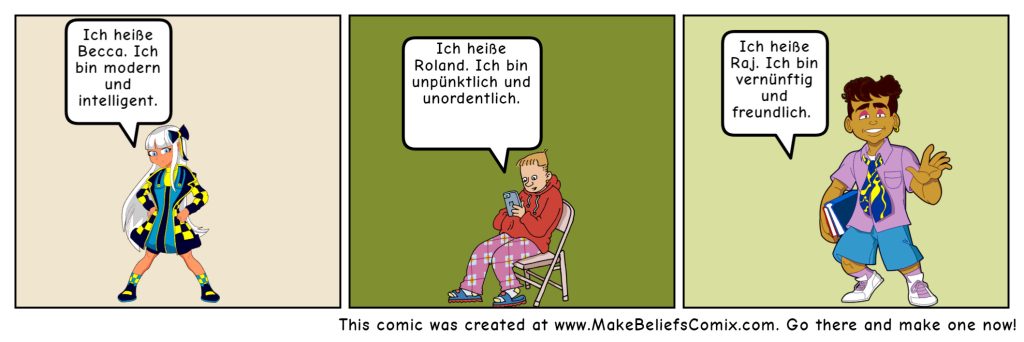
Jetzt bist du dran!
Wie bist du? What are you like? Complete the answer “Ich bin…” with words that describe you.
Lektionsüberblick
In this lesson, we will build on our work with characteristics (Eigenschaften) by introducing words that can indicate opposites. The ability to use a word like nicht (not) to make something it’s opposite can basically double your vocabulary. In the end, you will be able to 1) learn opposites of characteristics through the negation “nicht” and 2) name contrasting characteristics that describe yourself.
1) Character opposites with “nicht”
In the previous lesson, you learned that many adjectives can be negated by adding -un in front of them (e.g. pünktlich vs. unpünktlich). This happens in English too, right? (e.g. happy vs. unhappy). Similarly, English negates adjectives by placing the word “not” in front of them. Complete the activity below to see how German is similar.
Now let’s try it out.
| Das stimmt gar nicht! That’s not true!
Becca and Raj talk about themselves, but they disagree with every opinion each person has about themselves. |
|
Jetzt bist du dran!
Köln im Blickpunkt
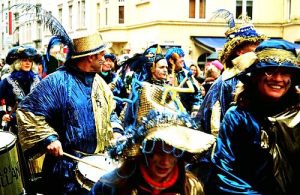
Der Kölner Straßenkarneval ist ein großes Fest in Köln, das jedes Jahr im Februar oder März stattfindet. Die Menschen verkleiden sich in bunten Kostümen, feiern auf den Straßen, tanzen und singen. Während des Karnevals werden mehr als 150 Millionen Gläser Kölsch getrunken, weil Besucher aus ganz Deutschland und der Welt nach Köln kommen, um mitzufeiern.
The Cologne Street Carnival is a major festival in Cologne that takes place every year in February or March. People dress up in colorful costumes and celebrate in the streets, dancing and singing. During Carnival, more than 150 million glasses of Kölsch beer are consumed, as visitors from all over Germany and around the world come to Cologne to join in the festivities.
2) Talking about contrasting characteristics
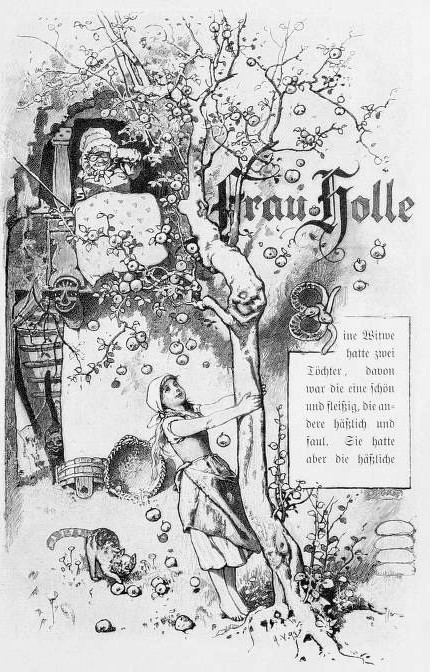 |
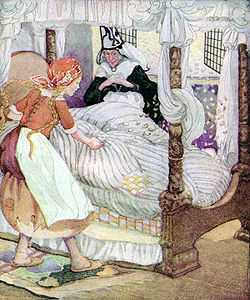
Read below an excerpt in English of Frau Holle, one of the fairy tales adapted by the famous Brothers Grimm. In the excerpt, look for examples of adjectives that describe the characters in the story. |
What adjectives did you read? Now let’s read a little bit in German.
Now let’s see how we can use little words like and and but to build sentences and to add contrast. Be sure to click through to each question in the question set.
Interested in the rest of the tale? Check out the full story.
Jetzt bist du dran!
Zum Schluß

*As you conclude this lesson, don’t forget to check Canvas!*

Media Attributions
- Frau Holle in English adapted from Literawiki, considered to be released under the CC-BY-SA International License.
Media Attributions
- 1010-1020 banner long large reduced
- 3.1 Eigenschaften _1 comic © This comic strip was generated at http://www.MakeBeliefsComix.com. Used by permission of author and site creator Bill Zimmerman.
- 3.1 Eigenschaften _3 comic © This comic strip was generated at http://www.MakeBeliefsComix.com. Used by permission of author and site creator Bill Zimmerman.
- becca und taj © This comic strip was generated at http://www.MakeBeliefsComix.com. Used by permission of author and site creator Bill Zimmerman.
- Photo of Rosenmontag by Gudrun Velten, Wikipedia
- Hermann_Vogel-Mother_Hulda-1 is licensed under a CC BY-SA (Attribution ShareAlike) license
- Image of Frau Hölle by 250px-Madame_Holl_-_Anne_Anderson © Anne Anderson (1874-1930) is licensed under a Public Domain license
- Private: confidence scale_large horizontal_updated

